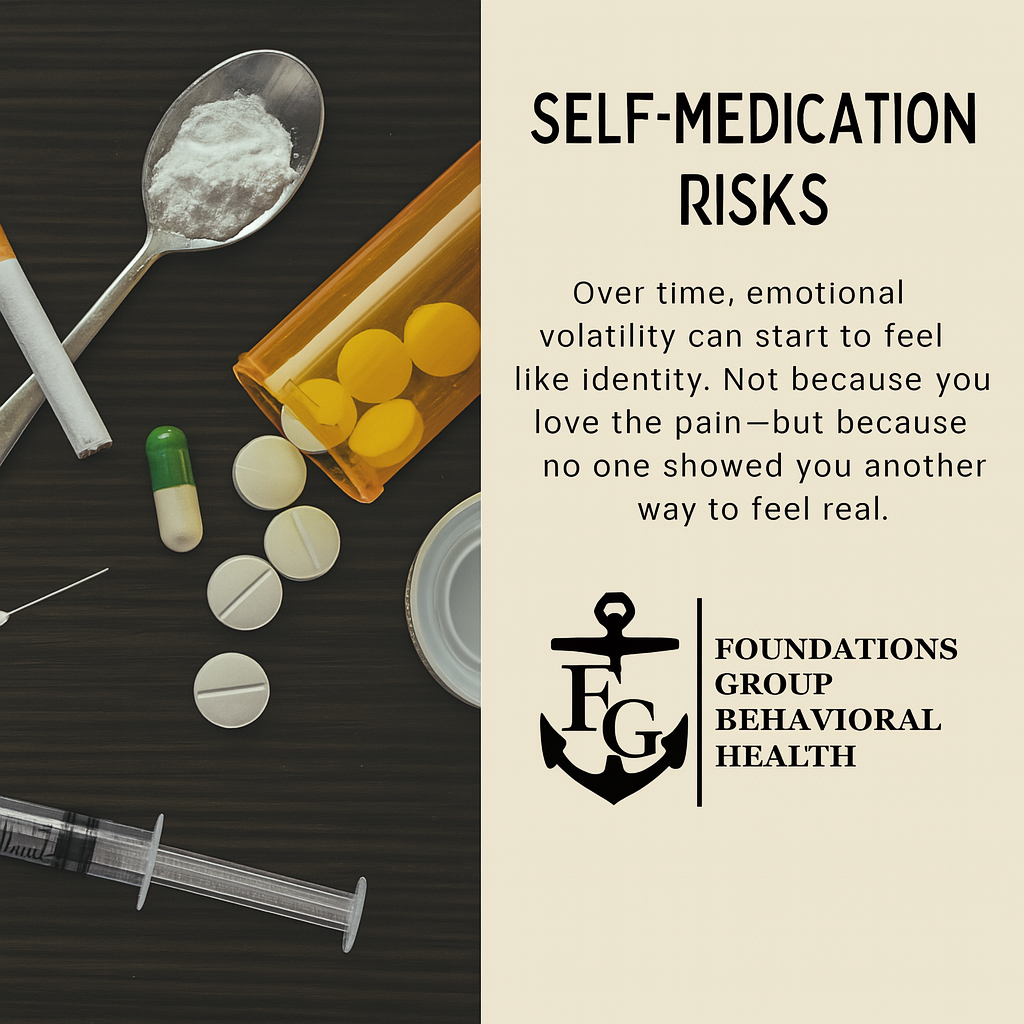There was a time I thought I was my chaos.
Not in a romantic way—more like a defensive one. The bigness of my feelings, the intensity of my reactions, the moments I could charm a whole room and then dissolve in the car ride home. I knew how to survive using charisma, emotional instinct, and just enough unpredictability that no one ever saw how scared I was.
When someone first said “personality disorder,” I didn’t hear help. I heard threat.
To the very parts of me that made me feel me.
Would treatment dull me down? Flatten the things that felt alive in me—even if they were painful? Would I lose my edge, my voice, the way I made sense of the world?
Here’s what I didn’t know then:
Personality Disorder Treatment doesn’t erase you. It helps you finally make peace with the parts of you that were always asking to be heard.
At first, the intensity felt like identity
If you’ve lived with a personality disorder, you probably know what I mean.
Everything feels like too much—until it doesn’t. Then you swing to numbness. Then panic. Then a sharp, strategic version of control. Whether it’s Borderline, Avoidant, Narcissistic, or another cluster, the world feels like it’s constantly pushing you to explain or prove yourself.
Over time, that emotional volatility can start to feel like identity. Not because you love the pain—but because no one showed you another way to feel real.
What I learned in treatment is this:
Intensity isn’t the enemy. But without tools, it turns your inner world into a storm—and your relationships into collateral damage.
Personality Disorder Treatment gave me the “in-between” I never knew I needed
At Foundations Group Behavioral Health in Mashpee, MA, I found something I never expected:
Language. Space. And a middle ground between being too much and not enough.
Their Personality Disorder Treatment program didn’t ask me to change who I was. It helped me understand why I reacted the way I did. It gave structure to emotions I thought were just proof I was broken.
I learned how to:
- Sit with discomfort without fleeing or performing
- Trust my perceptions without spiraling into paranoia
- Express need without shame
- Understand when my “protective self” was hijacking moments that didn’t require war
That didn’t make me less me. It made me someone I could finally recognize—without having to survive every second.

Healing didn’t silence me—it tuned me
I used to think emotional regulation meant emotional repression. Like treatment would turn me into someone boring, docile, or permanently apologetic.
But here’s what actually happened:
- My voice got clearer, not quieter.
- My creativity deepened—because I wasn’t spending all my energy repairing emotional explosions.
- My relationships got warmer, steadier, and less transactional.
- And I stopped mistaking validation for intimacy.
I didn’t lose my fire. I just stopped letting it burn me from the inside out.
It didn’t change who I was. It helped me be who I was—without all the noise
The best metaphor I can give you?
It’s like I had a band playing in my head at full volume, 24/7.
Each instrument was a part of me—protective, scared, reactive, tender, joyful. But they were all playing over each other, competing, yelling. Personality Disorder Treatment helped me conduct that band. Not silence it—conduct it.
Now, the music makes sense. It builds. It rests. It communicates.
You are not too much. You’ve just been carrying too much, alone.
If no one has ever said this to you, let me be the first:
Having a personality disorder doesn’t make you manipulative, selfish, or unlovable.
It means your emotional system has been on high alert for a long, long time—and you’ve adapted the only way you knew how.
But those adaptations?
They don’t have to be your forever.
Treatment isn’t about scrubbing away your soul. It’s about giving you the emotional brakes, boundaries, and resilience to navigate life without constant crash landings.
Personality Disorder Treatment didn’t fix me. It freed me.
I still have big feelings. I still get scared of abandonment sometimes. But now I know what to do with those fears. I know how to name them, respond to them, and let them pass through me instead of define me.
That’s what a managed personality disorder feels like:
Room to breathe. The chance to show up. The ability to feel like yourself—without the chaos deciding what that self is.
FAQ: What People Ask When They’re Afraid of Losing Themselves in Treatment
What if treatment takes away the parts of me I like?
It won’t. Treatment helps you keep your creativity, depth, and passion—but gives you more emotional room to use them with intention instead of urgency. You’ll still feel like you. Just more rooted.
Do all personality disorders need the same kind of therapy?
Not exactly. Most Personality Disorder Treatment plans are customized based on your diagnosis and lived experience. Dialectical Behavior Therapy (DBT), schema therapy, and psychodynamic work are often integrated—especially when trauma or attachment issues are involved.
How long does it take to “feel better”?
Progress isn’t linear. Some people notice improvements within weeks—like better sleep, fewer outbursts, or stronger self-awareness. Others see changes more slowly. What matters is that you’re supported the whole way through.
Can I still be in a relationship while in treatment?
Yes. In fact, many people find their relationships improve because they’re no longer managing emotions in isolation. Your partner may even be invited to family sessions or support education.
What if I don’t trust therapists?
That’s more common than you think—especially for people with abandonment trauma or invalidation in childhood. A good program (like ours) will respect your pace, honor your defenses, and never force vulnerability.
You deserve to feel like yourself without drowning in your own brain.
Call 888-685-9730 or visit our Personality Disorder Treatment program in Mashpee, MA to explore care that meets you where you are—and helps you find the parts of yourself you never lost, just learned to fear.








